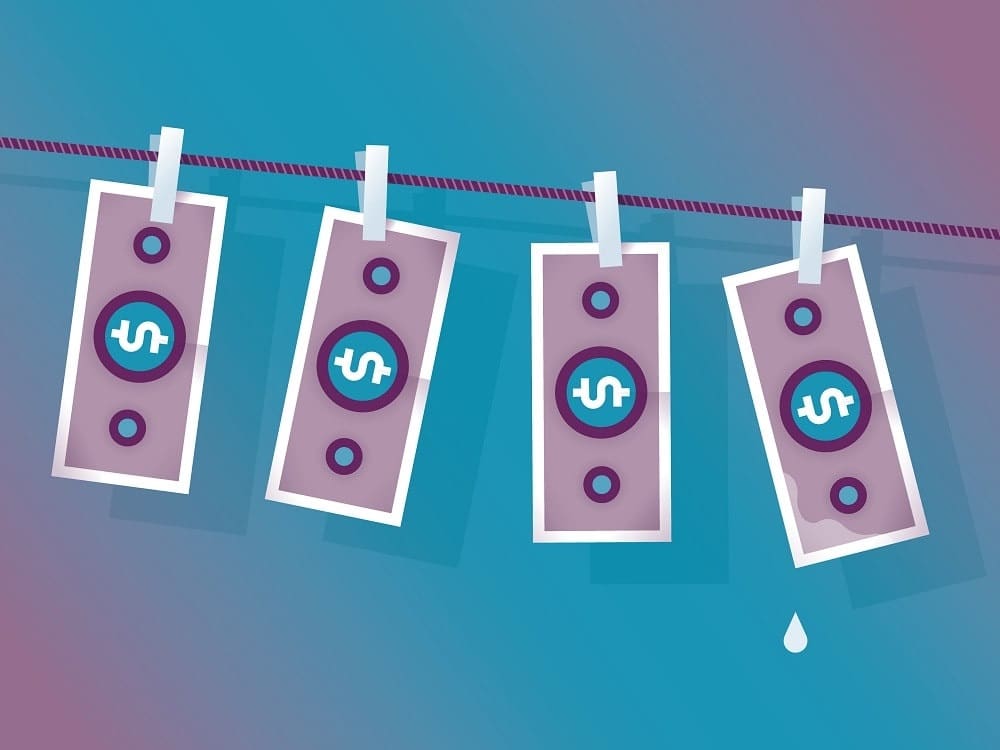Guðmundur Kristjánsson, CEO of Lucinity, discusses the recent uptick in AML fines and what this may portend for banks and other financial institutions in the fight against financial crime.
The number of fines for anti-money laundering (AML) failures during the first half of 2020 has already outstripped those for the entirety of 2019. It’s evident, then, that we’re sitting on the cusp of another potential surge in financial crime, as the COVID-19 pandemic increases pressure on people, processes and systems across the world.
How then, can banks and major financial institutions mitigate the risk of financial crime and the increasing sophistication of money launderers, especially when criminals thrive in such chaotic and uncertain times?
History Predicts the Future
When we look back, the common denominator tying together the 21st century financial crime timeline is exploitation of a crisis. Possibly one of the most significant occurrences this side of the millennium took place on September 11, 2001 in New York City. The 9/11 tragedy prompted some of the biggest overhauls in anti-money laundering law and financial crime legislation in history, as the U.S. government sought to cut off terrorism funding at the source in the war against terror.[1]
The 2008 financial crisis provided another catalyst for widespread change, as money launderers zealously exploited the global anarchy and chaos dominating the world. And, more recently, the Danske Bank scandal sparked significant regulatory change among EU member states, with the European Commission’s 5th anti-money laundering directive currently being adopted.
Will the COVID-19 Pandemic Prompt Another Surge in Financial Crime?
All the evidence above points to the fact that the financial world is set to experience another upsurge in money-laundering crime, as banking C-suites brace themselves for sustained economic disruption across the board.
Even before COVID-19 hit, banks and Chief Compliance Officers (CCOs) were hard-pressed to drive meaningful digital transformation of their anti-money laundering systems, often struggling to get hold of the required data to help them efficiently audit and track clients. Compounding the issue now is the fact that most anti-money laundering and compliance teams are working remotely, putting additional strain on already ailing legacy technology.
And criminals are only too ready to take advantage of this. Just look at the scale of food fraud right now – estimated at around $50 billion – as criminals set out to deceive consumers and businesses alike. This is heaping further pressure on compliance teams and their outdated systems as they struggle to prevent the flow of money laundering funding these illicit activities.
With coronavirus already having such a significant financial impact, the real risk here is that banks could rush CCOs to recruit new customers in order to boost short-term cash flow. But without the proper safeguards in place – including anti-money laundering technology that’s actually fit for purpose – customer due diligence will inevitably take a hit.
AI-Powered AML Tech to Oust Rule-Based Approach
Fortunately, in a bid to build more sophisticated and contextual views of their clients, an increasing number of banks are beginning to embrace the power and potential of AI and machine learning as a means of more effectively and efficiently tracking money laundering, rather than relying on an outdated and restrictive rule-based approach.
Rule-based systems typically flag transactions over a certain amount or block transactions to specific high-risk countries – and it’s then up to a human investigator to decide whether these transactions are suspicious or not. Furthermore, with the U.S. recently proposing to lower the threshold for flagged international transactions from $3,000 to $250, there’s a monumental amount of individual transactions for human investigators to trawl through.
This is where AI-powered technology really shines. It’s trained to recognize patterns and flag suspicious activity, regardless of the threshold. Actual transaction amount is less of a focus for AI – it’s the subtle variables and suspicious historical activity where AI earns its keep. This technology is also able to adapt its approaches in real-time and delve much deeper into contextual information and anomalies that a human would otherwise miss.
We’re in This Together: Collaboration to Combat Financial Crime
Money laundering is an unpredictable beast. For example, a money-laundering flow may start in one corner of the globe and be “layered” through numerous transactions and bookkeeping tricks across a couple of other continents before eventually being withdrawn from a “legitimate” account on the opposite side of the world from where it started, in a region with wildly different laws and regulations.
You see the issue. At no point does an individual bank, regulator or government have full visibility on the entire money-laundering flow. With no prior evidence to learn from, many banks and regulators are working in isolation to desperately plug these invisible holes.
Encouragingly, regulators and governments recognize that anti-money laundering is a fundamental societal issue, which is why greater collaboration is needed between everyone involved – from banks to governments and regulators to private sector businesses. Only when widespread knowledge-sharing and problem-solving becomes common practice between every victim of the money-laundering process will we be able to gain an accurate picture of how these criminals act.
That’s why it’s critical we emerge from this pandemic as allies and collaborators in order to continue the long-term fight against money launderers and financial crime. When we combine the rapid advances in AML technology with increased collaboration, we’ll begin to finally level the playing field – but more wholesale change is needed if we’re to learn from past mistakes and prevent another damaging surge in financial crime from occurring again.
[1] https://www.fatf-gafi.org/about/whatwedo/



 Guðmundur Kristjánsson, more commonly known as GK, is a veteran in the compliance space. Before founding
Guðmundur Kristjánsson, more commonly known as GK, is a veteran in the compliance space. Before founding 






